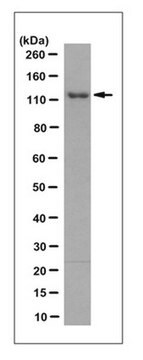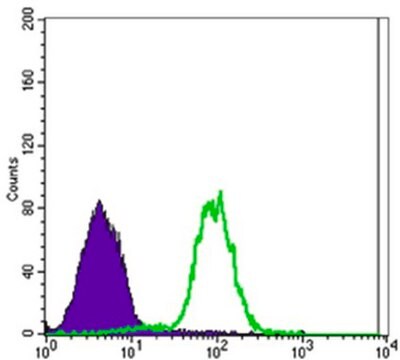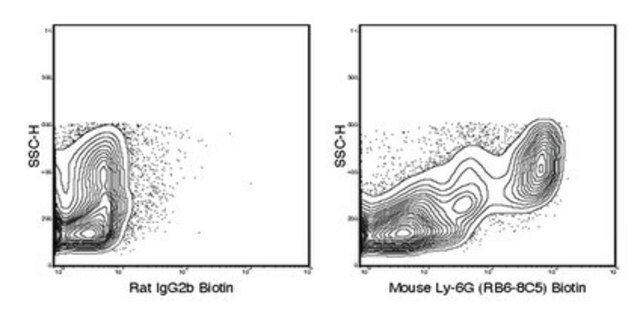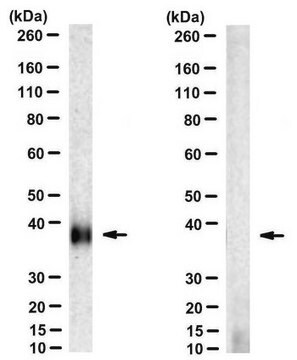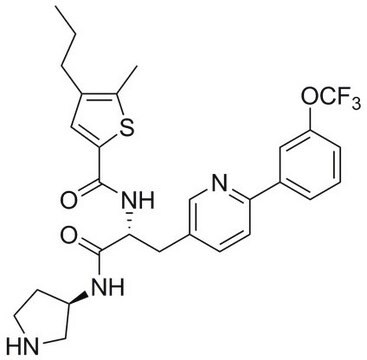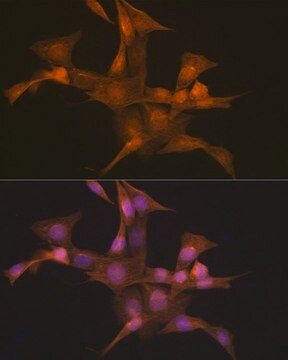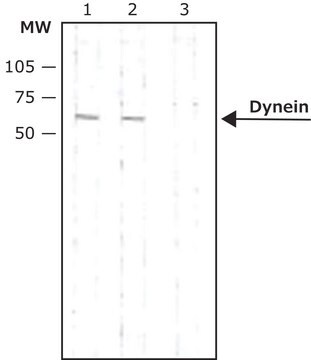MABN704
Anti-ASS1 Antibody, clone 2C10
clone 2C10, from mouse
Sinónimos:
Argininosuccinate synthase, Citrulline--aspartate ligase, ASS1
About This Item
Productos recomendados
origen biológico
mouse
Nivel de calidad
forma del anticuerpo
purified antibody
tipo de anticuerpo
primary antibodies
clon
2C10, monoclonal
reactividad de especies
mouse, human, rat, monkey
técnicas
immunohistochemistry: suitable
western blot: suitable
isotipo
IgG1
Nº de acceso UniProt
Condiciones de envío
wet ice
modificación del objetivo postraduccional
unmodified
Información sobre el gen
human ... ASS1(445)
Descripción general
Inmunógeno
Aplicación
Optimal working dilutions must be determined by end user.
Neuroscience
Neurodegenerative Diseases
Calidad
Western Blotting Analysis: A 1:500-2,000 dilution of this antibody detected ASS1 in A431, Raji, MOLT4, Jurkat, A549, NIH/3T3, PC-12 and Cos7 cell lysates.
Descripción de destino
Forma física
Almacenamiento y estabilidad
Nota de análisis
A431, Raji, MOLT4, Jurkat, A549, NIH/3T3, PC-12 and Cos7 cell lysates
Cláusula de descargo de responsabilidad
¿No encuentra el producto adecuado?
Pruebe nuestro Herramienta de selección de productos.
Código de clase de almacenamiento
12 - Non Combustible Liquids
Clase de riesgo para el agua (WGK)
WGK 2
Punto de inflamabilidad (°F)
Not applicable
Punto de inflamabilidad (°C)
Not applicable
Certificados de análisis (COA)
Busque Certificados de análisis (COA) introduciendo el número de lote del producto. Los números de lote se encuentran en la etiqueta del producto después de las palabras «Lot» o «Batch»
¿Ya tiene este producto?
Encuentre la documentación para los productos que ha comprado recientemente en la Biblioteca de documentos.
Nuestro equipo de científicos tiene experiencia en todas las áreas de investigación: Ciencias de la vida, Ciencia de los materiales, Síntesis química, Cromatografía, Analítica y muchas otras.
Póngase en contacto con el Servicio técnico